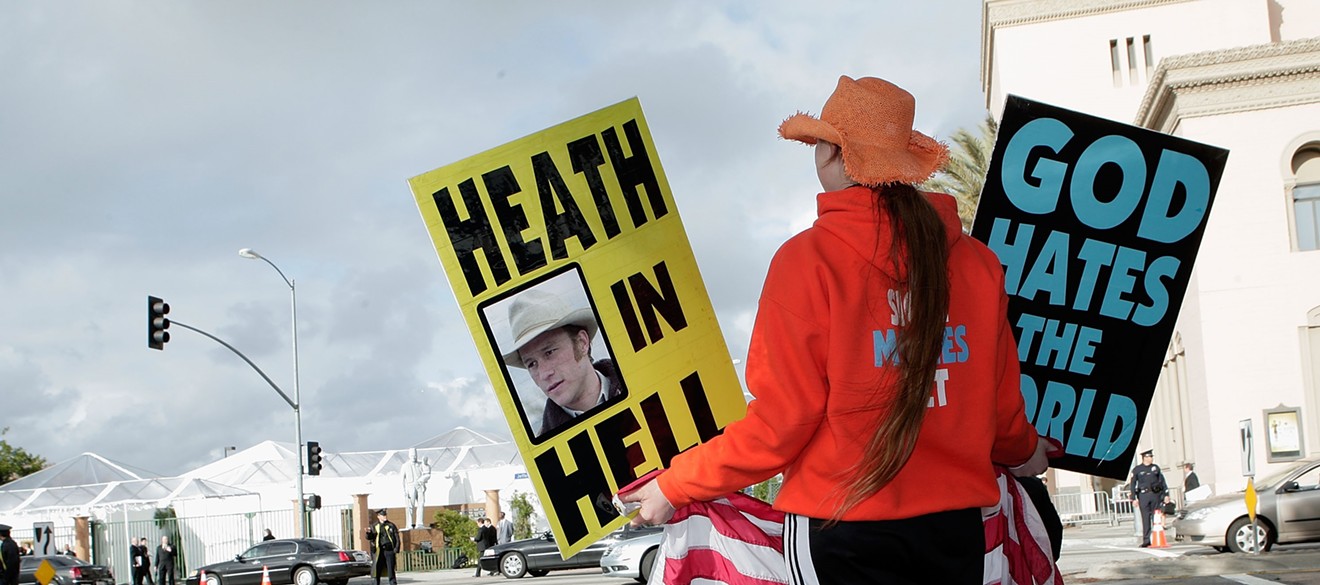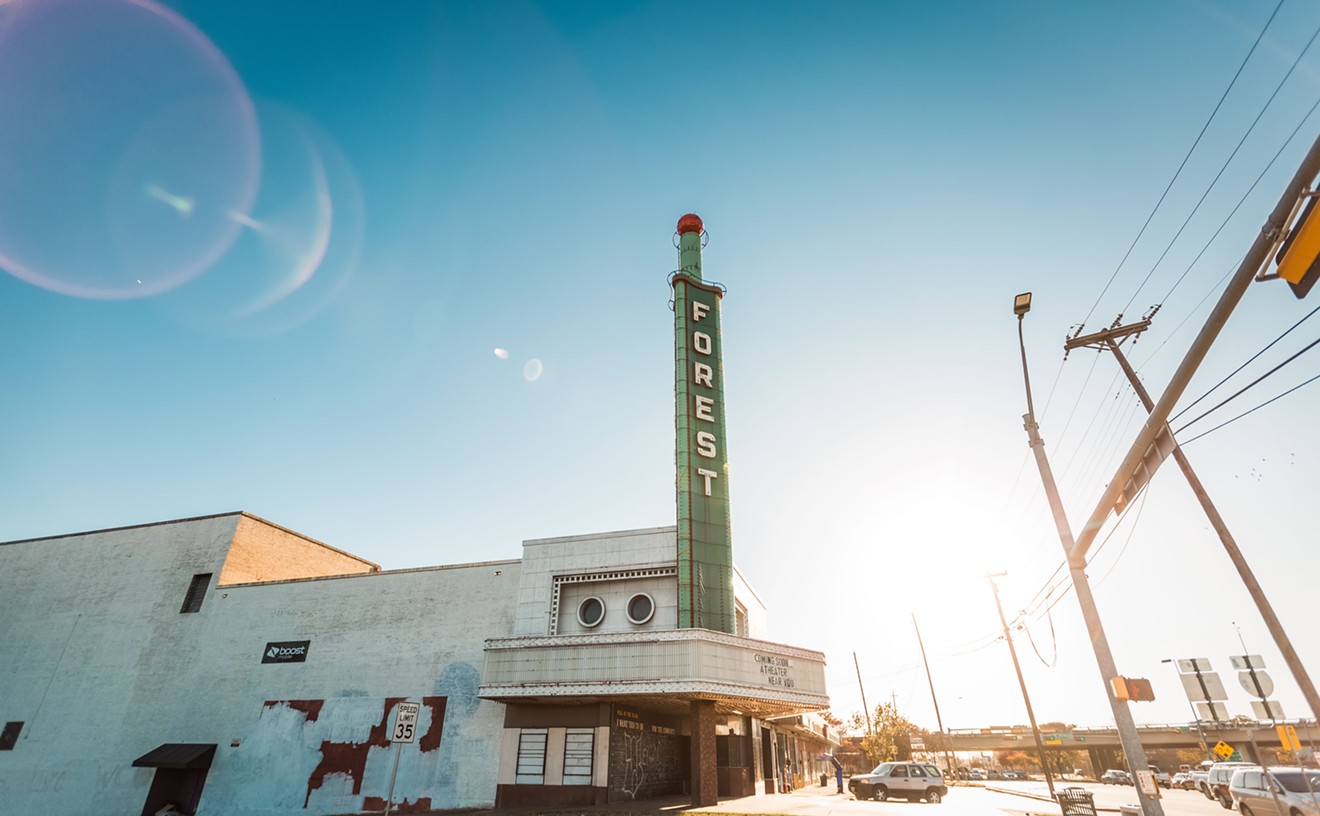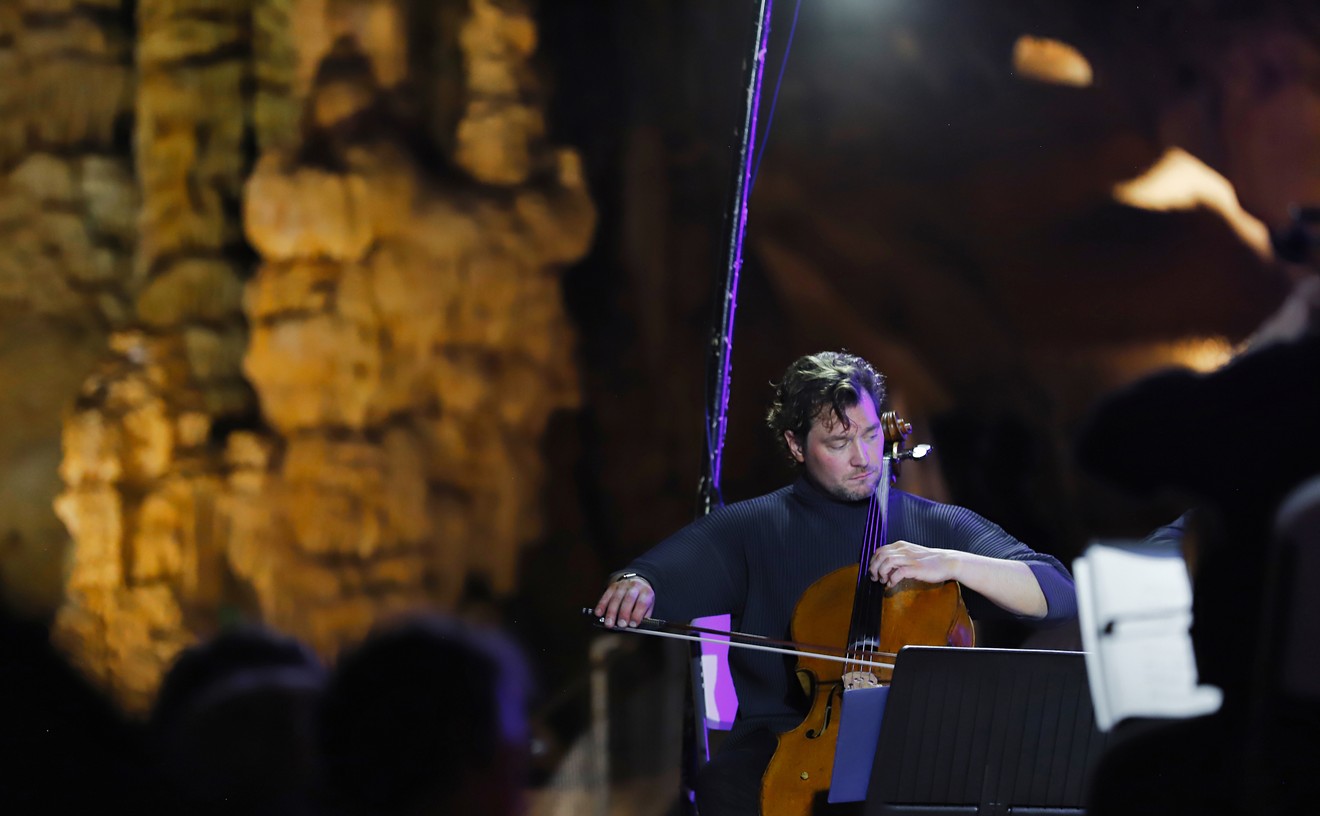If that wasn’t made clear from the pulpit, it was laid bare by her father, who “beat the shit” out of Michelle’s brother when he dared to come out. Plus, being gay was literally against the rules at Cincinnati Christian University, the now-shuttered Bible college both women attended. So Jensen held the weeping Michelle, then set her sights on God.
“All she can bring herself to say is, ‘I just want to be normal,’ and it broke my heart,” Jensen says. “I laid there and silently prayed the angriest prayer I have ever prayed in my life.”
“Hey, Yahweh,” Jensen’s prayer began, “I use your name because I want you to know who I’m speaking to. I am speaking to the Judeo-Christian God. You made us this way. If she could be, she wouldn’t be gay. So if you did this, if you created this just to say I’m wrong, I’m done. You’re losing me. Screw. You.”
Jensen prayed that prayer and lost her faith. She and Michelle would later break up for good, and after Jensen came out on Facebook in the summer of 2012, she withdrew from Bible college and settled back home in Dallas. She knew there was no place for her in Cincinnati, even if she wanted to say.
God would sometimes come up in conversation while Jensen worked at Sue Ellen’s, the popular lesbian bar in Dallas. If people asked her what she thought, Jensen would take a drag from her cigarette and say, through the smoke, “God may be real, but he’s a jerk.”
Jensen is not alone. For years, data has indicated that we are in the middle of a mass millennial exodus from church. Just two months ago, the analytics company Gallup found that only 47 percent of American adults are members of a church, mosque or synagogue. This was the first time the majority of Americans said they are not members of a church since Gallup started following such data in the 1930s.
Amidst this exodus, the Rev. Macie Liptoi, a Methodist pastor, got an idea.
“How can we create a church that makes spaces for people without trying to change who they are?” she wondered aloud during a recent phone interview. In other words, how can her church, a ministry called 723, offer community without conversion?
Part of the answer may be “Bible Bullshit.”
The weekly gathering is a starkly different experience than any Bible study you likely experienced as a kid. From 7:30 to 8:30 each Wednesday night at 723 Fort Worth Ave., Liptoi and anyone else who would like to attend tackle a different Bible quote or story that has been warped to harm others. The story of Sodom and Gomorrah was up first, and in the weeks ahead, Liptoi and company will detangle other passages commonly used to marginalize LGBT people.
The reverend knows many people will initially balk at the series’ crass title, but to her, there’s no better way to sum it up than “Bible Bullshit.”
“The whole idea was to take the bullshit out of the Bible,” Liptoi says matter-of-factly. “The Bible is sacred to me, but that doesn’t mean I can’t question it. We’re allowed to read this text and wonder about it, and it’s an opportunity to say you are loved by God. You were made intentionally by God to be exactly who you are.”
The name came from Jensen. After taking a couple years away from church of any kind, Jensen started volunteering at Lovers Lane United Methodist Church, with which 723 is affiliated. She was one of many people who talked to Liptoi about the dangers of accepting the Bible at face value.
“I told Macie, ‘We need to make a space for people who are hurting,’” Jensen says. And the title was a no-brainer. “I wanted to deliver the message that whomever was told God is not for you, that’s bullshit. I didn’t want to mince words.”
“I wanted to deliver the message that whomever was told God is not for you, that’s bullshit. I didn’t want to mince words.”– Tori Jensen
tweet this
This new brand of Bible study began the first week of June, and it will run through the end of August. It has already attracted people who have been hurt by the various ways the Bible has been mangled and misconstrued, people such as Kwame Lilly.
“It’s almost like an AA meeting, but for people who were wronged by the church,” says Lilly, who is bisexual. “Hearing what the text is really about versus what we were told is very healing and therapeutic.”
Lilly grew up going to a Church of Christ with his parents and siblings. His family loves him for who he is, Lilly says, but they are also strict and steadfast in their beliefs. It would never occur to them to question the Bible. That’s part of the reason Lilly has invited them to “Bible Bullshit.”
“I thought long and hard about who I can invite, and who I should invite,” he says. “I want to experience this with them, and I hope they come.”
Jensen and Liptoi have also thought a lot about who “Bible Bullshit” can reach. The way they see it, churches are at an impasse. Amidst the exodus, there’s a need for a “new frontier” of churches who embrace these kinds of conversations. Most importantly, this new frontier of churches must embrace people, regardless of who they love or how many questions they have about the Good Book. In their eyes, refusing to take a stance on topics like equality simply won’t cut it, and they may be right. Political science professor Michele Margolis’ book From Politics to the Pews posits that our increasingly polarized political environment (and in particular right-wing politics) are partly to blame for young people leaving the church. The more people associate religion with partisan politics, the worse that exodus will get.
Of course, this means “Bible Bullshit” runs the risk of alienating people just as other churches do. By attending protests, advocating for social justice and embracing the LGBT community, Liptoi and her colleagues at 723 will likely be labeled liberals. Yet the minister argues these actions are not political; they’re taken because it’s quite literally what Jesus would do.
“If I’m going to interpret the Bible, I need to look through the eyes of Jesus first,” she says. “I can’t ignore the fact that Jesus consistently advocates for the poor. We follow a Christ who flipped tables in the temple because the system was unjust.”
There’s another key difference between 723, “Bible Bullshit” and the intent of many churches, Jensen says.
“God talks about leaving the 99 sheep behind to get the one lost sheep,” she says. “We’re looking for outliers here. We’re not looking for the 99. It’s not supposed to be a megachurch. I'd love to see a diverse group of people — not just diverse in race and gender orientation, but diverse in beliefs. I want people who just have questions.”
And it’s OK if they’re angry, too, just as Jensen was on the floor of that Cincinnati dorm room. Since telling off God in a fit of rage, she has made her way back to a place of trust and understanding. She’s no longer sad or angry or operating under the belief that God doesn’t love her for who she is. She knows she is loved. She hopes Michelle knows that, too.
The former girlfriends have lost touch, but Jensen has a feeling Michelle is happier. Last she heard, she was married to a woman.











